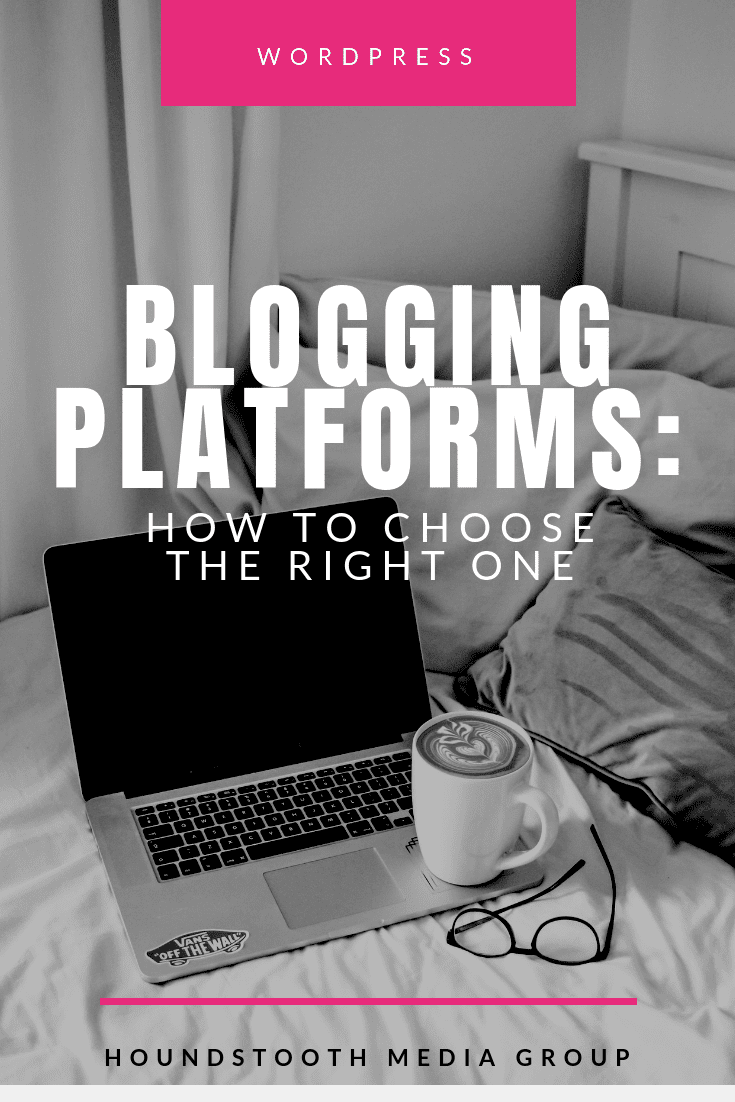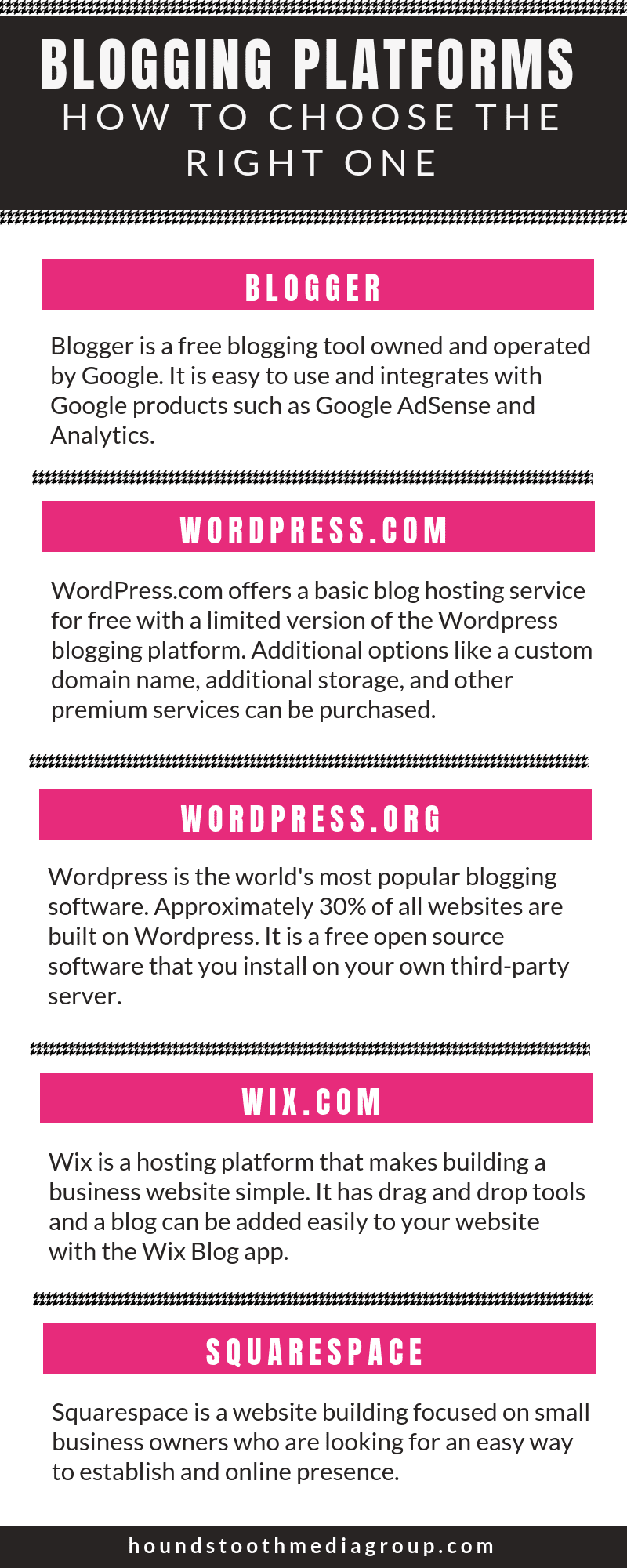
Starting a blog is a wonderful way to expand your business’ presence online. Offering valuable information to potential clients and the general public not only garners you additional exposure but establishes you as an expert in your field. If you are ready to take the plunge into blogging, you may be wondering how to choose from the many blogging platforms available. We’re taking a look at the most common blogging platforms and the pros and cons of each to help you choose the right blogging platform for you and your business.
Blogger
Blogger is a free blogging tool owned and operated by Google. It is easy to use and integrates with Google products such as Google AdSense and Analytics.
Pros:
- free
- HTML code is accessible, so your website is customizable
- ability to place AdSense ads and earn ad revenue
- access to Google’s security and reliability
Cons:
- not often updated with new features
- few templates available
- limited features compared to self-hosting
- lack of control: Google can suspend your blog or remove your content at any time
WordPress.com
WordPress.com offers a basic blog hosting service for free with a limited version of the WordPress blogging platform. Additional options like a custom domain name, additional storage, and other premium services can be purchased.
Pros:
- easy to use
- no setup required
- free
- hundreds of themes to choose from
Cons:
- no ad revenue, WordPress.com will run their own ads on your content unless you upgrade
- limited functionality without upgrades
- WordPress.com can suspend your account at any time
- .wordpress.com at the end of your domain name without upgrading
WordPress.org
WordPress is the world’s most popular blogging software. Approximately 30% of all websites are built on WordPress. It is a free open source software that you install on your own third-party server. It is easily customizable and gives the owner complete control over their website.
Pros:
- completely customizable
- thousands of free themes available
- over 50,000 plugins available to add functionality to your site
- search engine friendly
- ability to add features such as online stores, forums, and paid memberships
Cons:
- can be a bit of a learning curve
- must pay for your own domain name (~$15 a year) and third-party hosting ($5+ a month)
- must manage your own website security and backups
- can be vulnerable to security breaches due to the popularity of the platform
Wix.com
Wix is a hosting platform that makes building a business website simple. It has drag and drop tools and a blog can be added easily to your website with the Wix Blog app.
Pros:
- templates and third-party apps make it easy to customize
- no coding skills required, everything is drag and drop
- ad integration
- unlimited bandwidth
- easy to use
- domain registration options
Cons:
- free account is limited and shows Wix branding and ads on your site
- limited customization options
- once you choose a template you cannot change it
- limited e-commerce features
- more expensive for full functionality than self-hosted WordPress
Squarespace
Squarespace is a website building platform focused on small business owners who are looking for an easy way to establish an online presence. It allows you to create beautiful websites using easy drag and drop tools.
Pros:
- simple to use and beginner-friendly
- professionally designed templates
- offers domain name with SSL/HTTPs and eCommerce stores
Cons:
- limited to the features built into their platform
- more expensive than self-hosted WordPress
- limited extra integrations
There are numerous other blogging platforms one could choose from but these five are the most widely used. Once you decide which of these blogging platforms to use, be sure to read about 5 Things Every Website Should Have to help you get started.
